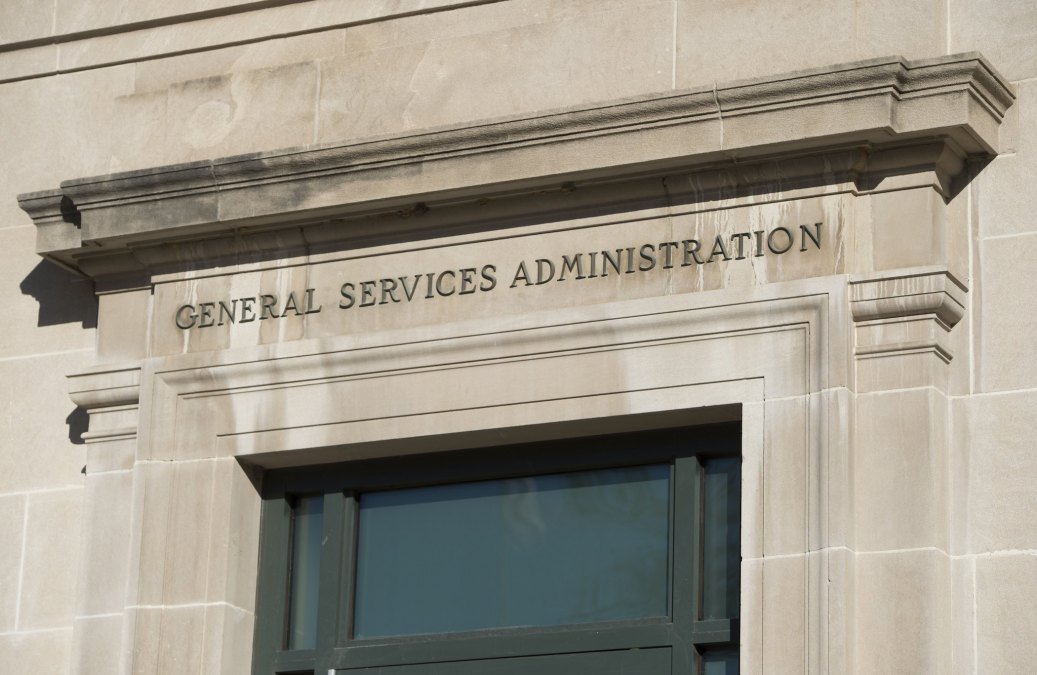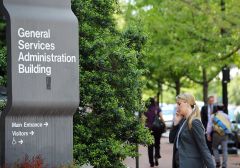Exclusive: GSA’s Turner Roth shares her vision for the agency’s new tech service — and 18F’s legacy

The days of the 18F digital services team may be numbered, but only in name — its mission to disrupt government IT, on the other hand, appears set to extend well beyond the current administration with the creation of a new technology service line at General Services Administration, the agency where it’s based.
GSA’s Technology Transformation Service — which will now house 18F, the Office of Citizen Services and Innovative Technologies, and the Presidential Innovation Fellows program, combining the work they all do into a single IT-development shop serving other agencies — creates a permanent, long-term home at the agency for agile and innovative thinking around the government, Administrator Denise Turner Roth told FedScoop.
Think of TTS like an 18F on steroids — providing all of the IT development and consulting services the startup-like digital team was piloted two years ago to do, but now with the support and scale to meet the federal government’s seemingly insatiable demand.
The Technology Transformation Service “will be that consulting space, it will be the testbed, it will be the further exploration of digital services,” Turner Roth told FedScoop in an exclusive interview.
“The importance of technology in government is essential, and the Tech Transformation Service says that it’s here to stay and that we will continue to explore this space,” she said.
Founded within GSA under then-Administrator Dan Tangherlini, 18F started as a good idea to play around with the conventions of how government built, bought and shared digital technologies in an agile way — and provide that to other agencies who were struggling with it. Now just months after its second birthday, growing from a team of a dozen or so to nearly 200, the 18F model for technology modernization and digital development has been elevated into essentially its own service line, on par with the Federal Acquisition Service and the Public Building Service.
“It’s about increasing our capacity to support demand, and it means for us internally that we are now going to look at our structure and how we support 18F as a permanent part of the family,” Turner Roth said. “And now while we’ve seen the interest continue to grow and the need continue to be there, we now want to ensure that, internal to GSA, we’ve created the foundation to support long-term growth and long-term sustainability.”
The initial leadership of the service reflects that as well, said Turner Roth, who just promoted two officials who’ve been critical to the success of 18F over the past two years. Turner Roth named Phaedra Chrousos, formerly associate administrator of OCSIT/18F, as the service’s first commissioner, and Aaron Snow, executive director of 18F, as her deputy.
Already, what were until this week referred to individually as 18F, OCSIT and the PIFs are “morphing” into one and “starting to refer to themselves as the Tech Transformation Service,” Turner Roth said.
“As the organization matures, the separation of the three falls aways and it actually morphs into a robust support system in this consulting, digital, agile services space,” she said.
The TTS won’t encompass all of GSA’s technology endeavors. FAS’s Office of Integrated Technology Services will continue to handle governmentwide IT acquisition services, just like CIO David Shive’s office will ensure GSA remains a leader in internal IT infrastructure, security and communications, and the Office of Governmentwide Policy will continue to drive IT governance around things like shared services and open data.
There is, however, a tremendous opportunity there for partnership, Turner Roth said.
“My vision here … in an ideal world is that an idea starts within TTS in which we’re supporting other agencies, and we then look to mature it, and even maybe make it an acquisition offering that can go and be supported by FAS at a very large scale,” she said. “I think there will be necessary work happening between TTS and FAS and the Office of Governmentwide Policy, and so we need to ensure that there is a seamless interface between all of those entities to ensure that our customers don’t feel any difference or feel there is a separation.”
Now that TTS is officially stood up — Turner Roth said GSA notified Congress of the transition and that there’s no need for “new dollars” to support it beyond what the three teams already receive in the budget process — the focus will be on creating a permanent “apparatus” for IT development in government that will “last beyond its creators,” she said.
The coming months — before the presidential transition next January, which will almost undoubtedly bring a change in TTS leadership (Chrousos, like Turner Roth herself is is a presidential appointee) — are all about planning for longevity, she said.
“So we’re going to take this time to step back and say, ‘OK. How is it working? What is it we need to enhance? What is it we need to do different to strengthen this apparatus to ensure that this entity is not just a test idea but it has strong sustainable roots in our agency,” Turner Roth said.
Though it’s just the first week of TTS’ public existence, Turner Roth said it’s not too soon to start thinking about its next leader — likely a career official who can serve into the next presidential administration, someone who can embrace “that role as a fundamental partner with our federal agencies and [ensure] that as a the technology space continues to move, that we too are moving with it.”






